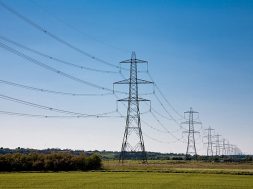
Asia at the speed of light: An interview with the head of ReNew Power
The energy transition will remake Asia, says Sumant Sinha, managing director of ReNew Power.
ReNew Power is just ten years old—but a lot can happen in a decade. Today, ReNew is India’s largest renewable-energy company, with more than 110 wind and solar sites across the country. Backed by a group of prominent global investors, ReNew now generates 1 percent of India’s total electricity. Founder, chairman, and managing director Sumant Sinha has championed entrepreneurship by women, whose increased participation in the workforce could boost India’s GDP. ReNew has spurred the creation of nearly 85,000 jobs since 2011, and the company is heeding the government’s call for India to become self-sufficient; in July of last year, ReNew announced plans to manufacture solar cells and modules in India.
While coal is expected to remain a significant component of the country’s energy mix for several decades, India is placing big bets on renewable power, which could make up nearly half of global total electricity capacity by 2035. The stakes are high: decarbonizing the global power sector, which accounts for about one-third of the world’s carbon emissions, would be critical to preventing the worst effects of climate change. As Sinha puts it, “As fast as we might go, it won’t be anywhere near fast enough.”
India’s energy needs are growing, and McKinsey projects that the country’s energy demand will roughly double by 2050. The government aims to get 40 percent of its total energy capacity from renewable energy by 2030, up from 24 percent now.
ReNew is helping to address this deficit. Sinha sees Asia transforming at the speed of light: the power industry is being remade, mobility is morphing, and digitalization will have profound and perhaps unforeseeable consequences for the continent. He reflected on the future of Asia in a discussion with McKinsey’s Amit Khera and Jason Li.
The Quarterly: What sets Asian companies apart? What are their most distinctive qualities?
Sumant Sinha: Indian companies—and Asian companies overall—are more family-driven than companies in the West. Most Indian companies have a predominant shareholder, or promoter.1 The motivations of these individuals differ from those of institutional shareholders, which are the primary owners of companies in the Western world.
There are advantages and disadvantages to this. Promoters tend to have a much longer-term mindset; they tend to think much more about the future than a management team might if it was driven by short-term results and incentives. On the flip side, sometimes promoters looking to protect their shareholding are unwilling to raise capital, even when it might be the right move for the company.
In general, companies in Asia, and perhaps more so in India, haven’t yet fully matured as board-run companies. Today, there are few non-promoter-driven companies in India, but this could change very quickly in the coming years as more Indian unicorns emerge.
The Quarterly: How does the general Indian culture affect corporate culture?
Sumant Sinha: Indian society is a little bit more hierarchical—less aggressive and more hidebound. To some extent, I think that reduces the level of innovation, free thinking, and meritocracy. How many young Indian CEOs can you think of? In the West, you see CEOs of major companies in their early 40s given a long run.
Indian companies do much less R&D. We don’t invest much in finding new or better ways of doing things. Indian companies are very good at translating existing technologies into viable domestic business models with lower costs. Only rarely do you see business-model or manufacturing innovations. That’s reflected in the lack of industry–academia collaborations, and in the number of patents that come out of India.
The Quarterly: Our research suggests that India has one of the largest opportunities in the world to boost GDP by advancing women’s equality.
Sumant Sinha: Unfortunately, traditional gender roles remain entrenched in India, and more so in the energy sector. However, at ReNew, we are committed to hiring women, particularly at the middle- and senior-management levels. We’ve launched several initiatives, such as “Power of W,” a women-only group where women are encouraged to speak up and share their inspiring stories; women’s mentoring programs; and various learning sessions aimed at promoting women’s workforce participation and economic independence. We also ensure that men are included, and that they, in fact, even champion some of these women’s empowerment programs so that they can be part of the solution rather than just being told what to do.
I feel a personal responsibility to advance gender equality, but this is not just about doing the right thing. India will not realize its growth potential without achieving gender equality, including in the workplace. Read More…
















